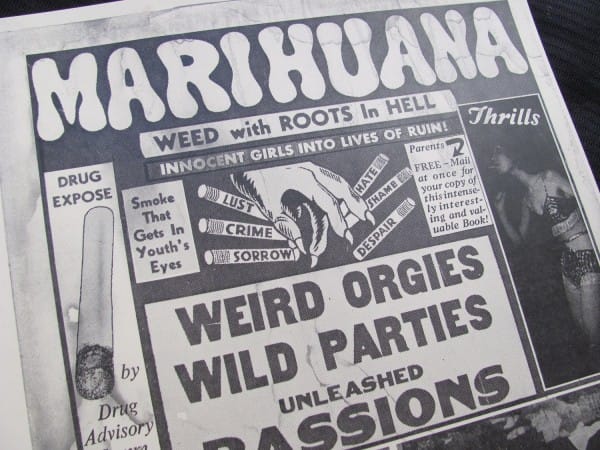80 Years after Reefer Madness, Grandpa Still Doesn't Want You Smoking Weed

It is now commonly accepted that a majority of Americans support the legalization of marijuana, with states like Colorado and Washington taking the first steps in making recreational marijuana socially (and legally) acceptable.
What is less clear is why such a dramatic shift has taken place in our society. An overwhelming 68 percent of Millennials favor legalizing marijuana use, according to a recent Pew study, and almost every other age group has recorded an increase in support as well.
There is one exception to the trend, however: the Silent Generation (aged 70-87). The Washington Post’s Philip Bump speculates that the reason for this is the difference in drug propaganda from earlier years versus now.
"When I was a kid during the 1980s, drugs were terrifying, depicted everywhere as hopelessly addictive and imminently deadly. One of my colleagues told a story about being terrified by encountering some pot."
Part of the terror came from ads like this, and the "This Is Your Brain on Drugs" campaign of the 1980s. But anti-marijuana propaganda is not a recent phenomena. Anti-marijuana ads date back to the first commissioner of the U.S. Treasury Department's Federal Bureau of Narcotics, Harry J. Anslinger, in the 1930s.
Ads like the one below depicted marijuana as the root of all evil, and were widely circulated in the mass media, linking violent crimes to the drug with little to no substantiation.

The fear instilled in earlier generations is reflected in Pew’s findings on why people oppose legalization, with the most common concern being drug safety. It also explains why the most staunch opposition to legalization comes from the Silent Generation.
Pew also reports that among the public, 30 percent say they support legalizing marijuana use and have always felt that way, while 21 percent have changed their minds. Those who oppose legalization, however, remain more rigid in their views, with just 7 percent having changed their minds from supporting to opposing legalization.


